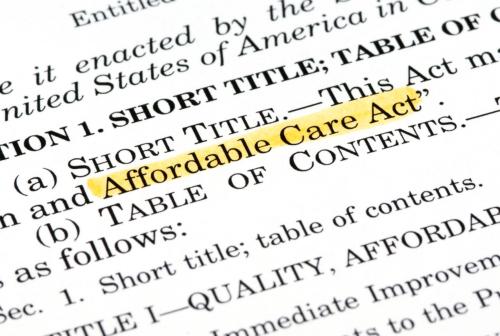There is a dramatic disconnect between the design and intent of the U.S. government’s health care programs when compared to the real needs of the population and in light of the realities of high-powered, very expensive modern medicine. Tinkering with our current approach simply will not solve our problems. We need a fundamental redesign.
This fictionalized account of a discussion among an erstwhile candidate for president, her key campaign advisor, and a self-styled “person with ideas” outlines the type of fundamental redesign necessary to ensure affordable access to health care for all Americans: mandatory health insurance with identical coverage for necessary medical care. This new system will be the responsibility of the federal government, replacing Medicare and Medicaid and removing the state role in health insurance.
The policy at the heart of this system will be community rated on a national basis, with premiums based solely on the number of people in each household, their age, and their sex. FDA-approved modalities that meet additional tests of personal and societal cost-effectiveness will be covered by this new insurance; for modalities with essentially identical efficacy, only the lowest-cost modality will be covered. Payment of premiums will be the responsibility of the head of household and will be paid primarily through payroll deduction. Annual payments for any individual household will be limited to a fixed percentage—based on a sliding scale—of the household’s total annual income and over- or under-deduction will be adjusted through the federal income tax system. The calculation of subsidies will be based strictly on a formula that considers total family income compared to total family premium cost and subsidies will be directed only to those who need them. The tax preference for employer-sponsored insurance will be eliminated.


